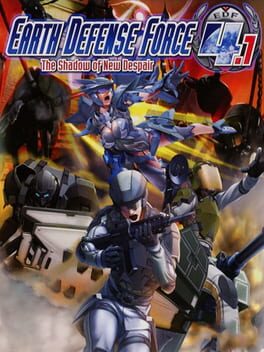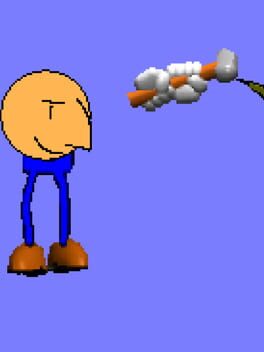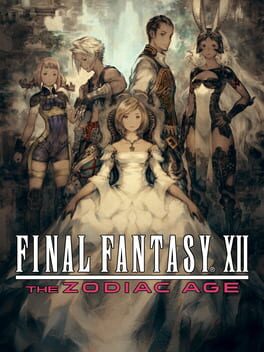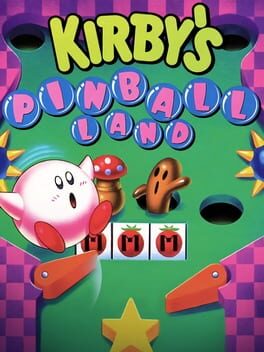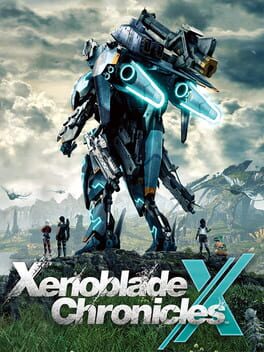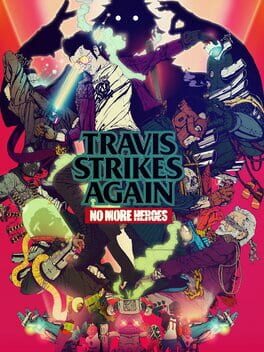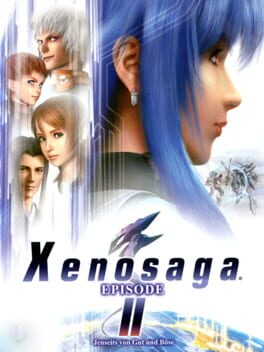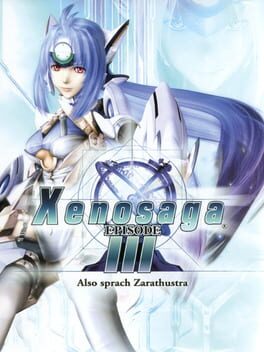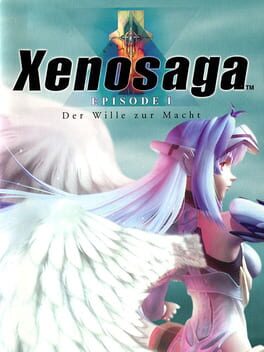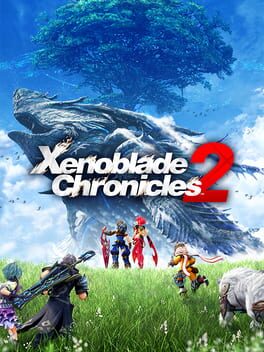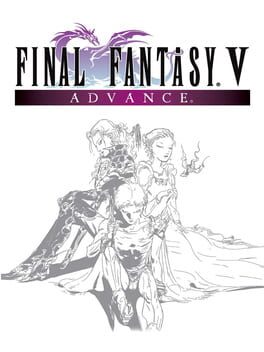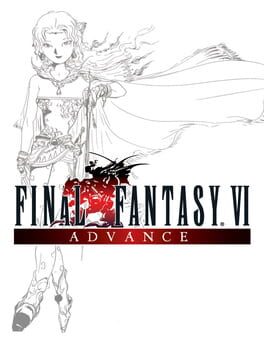blazing
121 Reviews liked by blazing
Sexy Hiking
2002
Sexy Hiking
2002
Definitely one of the best Final Fantasy games out there, and probably has the tightest ratio in the series of "good game" vs "not acknowledged as much as the others".
The story is great. You'll find people that say the story is "just like Star Wars" or derivative. While these complaints aren't completely meritless, I can't help but admit that anyone who genuinely thinks this to be a mark against this game likely didn't play through it entirely. The moment-to-moment experience of playing through this story is consistently thrilling, and a satisfactory adventure. You're thinking about just this game while playing it, and nothing else, because it's one of the most tightly-plotted games in the series.
To the story itself, it tells the tale of Dalmasca, a desert country in continent of Ivalice, and the next target of the encroaching Archadian empire. Upon the annexation of the Dalmascan capital, Rabanastre, a small group of freedom fighters from all walks of life find themselves thrust together by fate in an adventure that will shape the very face of history. FFXII has you playing as all sorts; from larger-than-life heroes, politicians, and knights, to swarthy thieves and scoundrels, to the hoi polloi commonfolk. They all pepper the main cast, as well as the guest characters you find along the way. This game has little in the way of "hanging out with each other" among these characters, but it does have quite a bit of "hanging out in the WORLD" that makes it such an enamoring adventure. Beyond that, there are moments where your party shows unexpectedly-charming, teeth-clenched affection for one another, if the viewer is able to read between the lines of the fantastic voice acting.
And yes, the voice acting IS fantastic. I doubt it's a stretch to say Final Fantasy XII has the best English dialogue of any Final Fantasy game, and its place in the pantheon of dialogue for all games is quite high up there. You feel less like you're playing a quirky JRPG and more like you're witnessing one of Shakespeare's masterpieces. And yet, despite the characters' hifalutin, Byzantine cadences and vernacular, the viewer absolutely never feels left behind in the vocabulary. It's sharp and cutting, and it certainly does make every character feel like they're brimming with life.
The music is incredible. It's orchestral, it's heady, it's classical, it's weighty, it's just so good. The tracks range from light-hearted to heart-pounding, but not a single song in this DOESN'T inspire the listener to want to take up arms and embark upon a country-trotting adventure. I can't even begin to name all the most beautiful tracks in the game, but I'll go ahead and try: Flash of Steel, The Dalmasca Estersand, Nalbina Dungeons, The Tomb of [SPOILERS], Jahara - Land of the Garif, the Ozmone Plain, ERUYT VILLAGE (I really like the Eruyt Village theme), Discarded Power, The Stilshrine of Miriam, Respite, the Salikawood, A Moment's Rest, the Cerobi Steppe, Realm of Memory, To Walk Amongst Gods... and those are only the ones on my Spotify playlist. And I think I can safely say that the Final Boss theme of Final Fantasy XII is absolutely one of the most rousing, inspirational music tracks I have ever heard in a video game. If you can listen to it and not feel SOME sort of emotion come over you -- especially at the end of such a far-flung adventure, you would need to be either deaf, or a BORN. HATER (I'm kidding but seriously, it owns so hard).
Let's get to the gameplay. Many describe this gameplay as "MMO-like". I have dabbled in a few MMO's, but to be completely honest, I don't REALLY get the comparison, at least when compared to other Active Time Battle Final Fantasy games. Is it because the combat is seamless in the world? Probably. Moving along, the combat is quite good. The lifeblood of it is the Gambit system, a very rudimentary coding scheme that allows your dudes to automatically perform certain actions in a hierarchy upon the combat environment meeting certain conditions. For example, you could set it so Penelo will heal any ally of hers that dips below 30% health with a potion. If you place this at the top of the list, it will be her first priority, but she'll only perform it once that condition is fulfilled, so one could put BENEATH it "Attack any enemy" and she will attack. This is more or less how all your gambits will likely be organized; healing skills and curatives at the highest priority, followed by attack skills. It's both deceptively simple and... well, simple. It's not very hard. Which, in my evaluation, is good, as there's not much mental stimulation in the typical JRPG turn-based loop of "Run into monster" > "navigate menu" > "use effective skills" > "win" > "Run into monster" > "repeat". But there is still room for strategy, particularly with Final Fantasy XII's bosses and hunts, which offer the daring thrill-seeker a chance to stretch their tactical muscles.
That in mind, this game has quite the bevy of side-content. By some metrics, FFXII is even considered the mainline non-MMO Final Fantasy game that takes the most time to 100%, what with the dozens and dozens of side-quests in the form of the game's hunts. They're fun, no question, and they're quite challenging, but at the same time, I wish there were MORE sidequest mechanics. But that's a minor quibble in a game as stacked as this one; in addition to the hunts, there are multiple secret optional areas, optional summons, and hidden passageways, befitting of a fantasy world loosely based on a steampunk reimagining of the Mediterranean.
In conclusion, I have gone on record saying Final Fantasy XII is quite possibly my favorite game of all time, and it's definitely my favorite JRPG of all time. Is it a perfect game? No. Is it a really solid game for JRPG fans? Certainly. I hope this review might just convince you to play it if you're on the fence, and the Zodiac Age version is definitely the definitive way to do it.
The story is great. You'll find people that say the story is "just like Star Wars" or derivative. While these complaints aren't completely meritless, I can't help but admit that anyone who genuinely thinks this to be a mark against this game likely didn't play through it entirely. The moment-to-moment experience of playing through this story is consistently thrilling, and a satisfactory adventure. You're thinking about just this game while playing it, and nothing else, because it's one of the most tightly-plotted games in the series.
To the story itself, it tells the tale of Dalmasca, a desert country in continent of Ivalice, and the next target of the encroaching Archadian empire. Upon the annexation of the Dalmascan capital, Rabanastre, a small group of freedom fighters from all walks of life find themselves thrust together by fate in an adventure that will shape the very face of history. FFXII has you playing as all sorts; from larger-than-life heroes, politicians, and knights, to swarthy thieves and scoundrels, to the hoi polloi commonfolk. They all pepper the main cast, as well as the guest characters you find along the way. This game has little in the way of "hanging out with each other" among these characters, but it does have quite a bit of "hanging out in the WORLD" that makes it such an enamoring adventure. Beyond that, there are moments where your party shows unexpectedly-charming, teeth-clenched affection for one another, if the viewer is able to read between the lines of the fantastic voice acting.
And yes, the voice acting IS fantastic. I doubt it's a stretch to say Final Fantasy XII has the best English dialogue of any Final Fantasy game, and its place in the pantheon of dialogue for all games is quite high up there. You feel less like you're playing a quirky JRPG and more like you're witnessing one of Shakespeare's masterpieces. And yet, despite the characters' hifalutin, Byzantine cadences and vernacular, the viewer absolutely never feels left behind in the vocabulary. It's sharp and cutting, and it certainly does make every character feel like they're brimming with life.
The music is incredible. It's orchestral, it's heady, it's classical, it's weighty, it's just so good. The tracks range from light-hearted to heart-pounding, but not a single song in this DOESN'T inspire the listener to want to take up arms and embark upon a country-trotting adventure. I can't even begin to name all the most beautiful tracks in the game, but I'll go ahead and try: Flash of Steel, The Dalmasca Estersand, Nalbina Dungeons, The Tomb of [SPOILERS], Jahara - Land of the Garif, the Ozmone Plain, ERUYT VILLAGE (I really like the Eruyt Village theme), Discarded Power, The Stilshrine of Miriam, Respite, the Salikawood, A Moment's Rest, the Cerobi Steppe, Realm of Memory, To Walk Amongst Gods... and those are only the ones on my Spotify playlist. And I think I can safely say that the Final Boss theme of Final Fantasy XII is absolutely one of the most rousing, inspirational music tracks I have ever heard in a video game. If you can listen to it and not feel SOME sort of emotion come over you -- especially at the end of such a far-flung adventure, you would need to be either deaf, or a BORN. HATER (I'm kidding but seriously, it owns so hard).
Let's get to the gameplay. Many describe this gameplay as "MMO-like". I have dabbled in a few MMO's, but to be completely honest, I don't REALLY get the comparison, at least when compared to other Active Time Battle Final Fantasy games. Is it because the combat is seamless in the world? Probably. Moving along, the combat is quite good. The lifeblood of it is the Gambit system, a very rudimentary coding scheme that allows your dudes to automatically perform certain actions in a hierarchy upon the combat environment meeting certain conditions. For example, you could set it so Penelo will heal any ally of hers that dips below 30% health with a potion. If you place this at the top of the list, it will be her first priority, but she'll only perform it once that condition is fulfilled, so one could put BENEATH it "Attack any enemy" and she will attack. This is more or less how all your gambits will likely be organized; healing skills and curatives at the highest priority, followed by attack skills. It's both deceptively simple and... well, simple. It's not very hard. Which, in my evaluation, is good, as there's not much mental stimulation in the typical JRPG turn-based loop of "Run into monster" > "navigate menu" > "use effective skills" > "win" > "Run into monster" > "repeat". But there is still room for strategy, particularly with Final Fantasy XII's bosses and hunts, which offer the daring thrill-seeker a chance to stretch their tactical muscles.
That in mind, this game has quite the bevy of side-content. By some metrics, FFXII is even considered the mainline non-MMO Final Fantasy game that takes the most time to 100%, what with the dozens and dozens of side-quests in the form of the game's hunts. They're fun, no question, and they're quite challenging, but at the same time, I wish there were MORE sidequest mechanics. But that's a minor quibble in a game as stacked as this one; in addition to the hunts, there are multiple secret optional areas, optional summons, and hidden passageways, befitting of a fantasy world loosely based on a steampunk reimagining of the Mediterranean.
In conclusion, I have gone on record saying Final Fantasy XII is quite possibly my favorite game of all time, and it's definitely my favorite JRPG of all time. Is it a perfect game? No. Is it a really solid game for JRPG fans? Certainly. I hope this review might just convince you to play it if you're on the fence, and the Zodiac Age version is definitely the definitive way to do it.
Kirby's Pinball Land
1993
This review contains spoilers
This might have my favourite gameplay out of the xeno games. The tutorials are pretty poor, overdrive is a mechanic you basically have to watch a youtube tutorial to truly understand how it works. But once you do the combat is awesome. The continents are all beautiful and have an amazing sense of scale. Finally getting a skell and flying over what before seemed like such huge areas in seconds blows your mind and makes you feel like a god. The environmental story telling is probably the best in the series, you can constantly see nature at work with sights such as enemies feasting on the bodies of others.
The soundtrack is also one of the most unique and standout in the series, due to being done by Hiroyuki Sawano. There is a crazy number of amazing 10/10 tracks in this games OST.
Unfortunately, despite a few standout characters like Elma, Lao and Nagi, the story and cast are probably the weakest of any xeno game.
Also mr takahashi has some pretty big balls pulling the "Its something about this planet" cliffhanger stuff considering his track record of being unable to finish his big epics.
Still love the game but don't count your eggs before they've hatched.
The soundtrack is also one of the most unique and standout in the series, due to being done by Hiroyuki Sawano. There is a crazy number of amazing 10/10 tracks in this games OST.
Unfortunately, despite a few standout characters like Elma, Lao and Nagi, the story and cast are probably the weakest of any xeno game.
Also mr takahashi has some pretty big balls pulling the "Its something about this planet" cliffhanger stuff considering his track record of being unable to finish his big epics.
Still love the game but don't count your eggs before they've hatched.
The people who were around for the original punk movement and its derivatives are in their 60s, 70s, or even 80s now - isn't that crazy? My own dad, in his 60s himself, loves to remind me that he was actually there for Buzzcocks, The Clash, and Sex Pistols. His crown jewel "I was there" story is that he saw Diego Maradona score his first ever international goal at Hampden Park and then walked down the road to see Joy Division play their one and only gig in Glasgow later that day. Imagine living through that! When I go to a hometown gig and see a grey-haired dude or two hanging around the bar area, leaning on a walking stick or trying to sneak a breather, it's a surreal reminder that the ranks of "the older generation" are quickly being filled with people who raged against the machine before it was even a band. It's fun to imagine what these folks were like when they were young - what passions and dreams they held. How do I relate myself to them, and what do they have left to relate to me?
I'm not going so far as to say that Goichi Suda and his collaborators are synonymous with the occassional old men I see propping up the bar at their local PVSSYC#NT DIY show or Buzzcocks revival tour-stop, but the long-time staff at Grasshopper are, despite their pseudo-punk status, among the elder statesmen of game developers. Suda 51 has credits on 40 games that are spanned across three decades (will he retire at 51 games and release "The Suda 51 Games Collection"?!) and outside of secretive Nintendo legends like Miyamoto and Tezuka, I can't think of many individual game designers who are sitting on such broad production prestige and history. Travis Strikes Again, is, to my mind, the equivalent of one of those old greybeards finally sitting you down at a table in the beer-soaked venue and telling you all about their good old days stories - and how they're going to try and start a new band, too, of course.
It can feel somewhat ridiculous to attribute any video game to a single creator - as people often do with Suda - but Travis Strikes Again seems well aware of this, with frequent acknowledgements of the collaborative sacrifices that game developers make to create something that's either theirs or another's. It may feel unfair to the programmers and artists and guys who man the Twitter accounts, but I feel that it's imperative for games with "independent" spirit to continue transmitting truly single-personal perspectives in response to amorphous commitee-led industry dominators like Call of Duty and Assassin's Creed, and one of the only ways to tell a personal story is to focus it on one person - often the writer, or the director. Or the guy who is both. And the guy who is both in this case has an interesting life story (that's still in development, sorry) that I'd like to hear.
Despite speaking so highly of Suda (and Grasshopper) here, I'd say it's fair to say that it's rare that I outright love any of the many games they've made. There's always some glaring, punishing flaw or Duchampian aggression against the status quo that just reminds me too much that I'm wasting precious time. Time-wasting feels like a trait that's almost exclusively reserved for video games, and perhaps it's a unique aspect of the medium that Suda just loves to take advantage of time and time again to differentiate his work from that of a movie or painting or book. But I don't often appreciate it! And while it's nowhere near as brain-mummifiying as The 25th Ward or FSR, Travis Strikes Again still likes to hold up your clock. It feels to me like the game is hamstrung by a perceived need to offer value for money - despite its attempts to stand apart as a genuine art-piece of personal history, it's still constrained on some level by a desire to be a consumable product that people can "get their $40 from" and put 6/10 or 4/5 star ratings or whatever against in a games magazine or website or review blog. It fills its levels with stuff that simply doesn't need to be there, feeling like a guitar solo that goes on too long. But that's punk, right?
The greatest artwork-transgressor is likely the combat itself. While surprisingly strategic and satisfying at times (especially in the later levels), it eventually boils down to the same patterns/plays as always, and ultimately serves as an overbearing obstacle that stands in the way of getting more personal insights and pseudohistorical musings from the remembering minds at Grasshopper. Golden Dragon GP and Killer Marathon are probably the most enjoyable Death Balls in the collection due to the generous ways they interrupt the monotony of streets of raging/geometry warsing across Pac-Man mazes, and I kinda wish the game had been a minigame collection that homaged the different Grasshopper genres. It might have been even better if Travis had just peacefully walked round an Unreal Engine recreation of Suda's headspace and history in a manner not unlike Bubsy 3D: Bubsy Visits the James Turrell Retrospective; the game is at its best when it's just sharing its secrets and fun with you.
It's cute that the Serious Moonlight section bills itself as a Shadows of the Damned mini-sequel, but how fun would it have been if they're actually tried to emulate that game's feel, even superficially? C'mon! It's Unreal! The engine that everyone and everything uses for TPS action! (Given how much this game honours Unreal Engine/Tournament, it's a shame that Travis hasn't flossed his way into Fortnite yet) Perhaps too much to ask of our developers, but I honestly feel like there's a human limit to how much mindless swinging of a beam katana one can do while waiting for their clinch super move to charge back up. I went to the UK National Video Games Museum recently, and it proved to me that there's genuine value in getting people to experience gaming history by actually playing those games in quick, sequential succession. I think an Any% playthrough of Grasshopper's entire history is maybe what Vicarious/Grasshopper wanted for Travis Strikes Again, but probably didn't have time to do. Again, video games continue to take away our time in ways other artworks don't quite manage...
It's interesting to parallel this game with something like this year's Iwata Asks book - Iwata's auto/biography has some insightful stories and letters, but doesn't truly bear any of the guy's emotion or soul much beyond vague pleasantries like "I respect the developers at Nintendo" and "Shigeru Miyamoto was my friend". Suda, by contrast, seems more than willing to (sparsely) share his silver threads of thought, often in ways that can be uncomfortable for players - the infamous "the CEO of EA is a woman-beating piece of shit because he didn't let me make my high-concept AAA RPG game wacky enough" is an ugly piece of thinly-veiled thought from Suda, but it's preferable to the Nintendo CEO's polite corporate mannerisming. If video games really want to take that next artistic step, they do need the space to let out some of the ugly problematic thoughts inside our heads (the need to "burn sadness like life-giving fuel" as Travis surprisingly says), and I feel like Travis Strikes Again is moving things in the right direction. This is arguably an art-therapy session for these old boys.
At its core, I guess that's what Travis Strikes Again is. Something that's kinda ugly and protracted and painful, but undeniably worthwhile by virtue of its willingness to be earnestly personal and transgressive. A game that isn't so much about the act of playing the game itself, but more focused on the process of putting your brain against a gamepad to see inside someone else's brain on the other side of the cartridge. It's been a long road to this point, and there's still a long way to go, but they'll keep going. 10 hours of video games a day.
In the human world,
the time for games has ended.
Nothing binds us now.
I'm not going so far as to say that Goichi Suda and his collaborators are synonymous with the occassional old men I see propping up the bar at their local PVSSYC#NT DIY show or Buzzcocks revival tour-stop, but the long-time staff at Grasshopper are, despite their pseudo-punk status, among the elder statesmen of game developers. Suda 51 has credits on 40 games that are spanned across three decades (will he retire at 51 games and release "The Suda 51 Games Collection"?!) and outside of secretive Nintendo legends like Miyamoto and Tezuka, I can't think of many individual game designers who are sitting on such broad production prestige and history. Travis Strikes Again, is, to my mind, the equivalent of one of those old greybeards finally sitting you down at a table in the beer-soaked venue and telling you all about their good old days stories - and how they're going to try and start a new band, too, of course.
It can feel somewhat ridiculous to attribute any video game to a single creator - as people often do with Suda - but Travis Strikes Again seems well aware of this, with frequent acknowledgements of the collaborative sacrifices that game developers make to create something that's either theirs or another's. It may feel unfair to the programmers and artists and guys who man the Twitter accounts, but I feel that it's imperative for games with "independent" spirit to continue transmitting truly single-personal perspectives in response to amorphous commitee-led industry dominators like Call of Duty and Assassin's Creed, and one of the only ways to tell a personal story is to focus it on one person - often the writer, or the director. Or the guy who is both. And the guy who is both in this case has an interesting life story (that's still in development, sorry) that I'd like to hear.
Despite speaking so highly of Suda (and Grasshopper) here, I'd say it's fair to say that it's rare that I outright love any of the many games they've made. There's always some glaring, punishing flaw or Duchampian aggression against the status quo that just reminds me too much that I'm wasting precious time. Time-wasting feels like a trait that's almost exclusively reserved for video games, and perhaps it's a unique aspect of the medium that Suda just loves to take advantage of time and time again to differentiate his work from that of a movie or painting or book. But I don't often appreciate it! And while it's nowhere near as brain-mummifiying as The 25th Ward or FSR, Travis Strikes Again still likes to hold up your clock. It feels to me like the game is hamstrung by a perceived need to offer value for money - despite its attempts to stand apart as a genuine art-piece of personal history, it's still constrained on some level by a desire to be a consumable product that people can "get their $40 from" and put 6/10 or 4/5 star ratings or whatever against in a games magazine or website or review blog. It fills its levels with stuff that simply doesn't need to be there, feeling like a guitar solo that goes on too long. But that's punk, right?
The greatest artwork-transgressor is likely the combat itself. While surprisingly strategic and satisfying at times (especially in the later levels), it eventually boils down to the same patterns/plays as always, and ultimately serves as an overbearing obstacle that stands in the way of getting more personal insights and pseudohistorical musings from the remembering minds at Grasshopper. Golden Dragon GP and Killer Marathon are probably the most enjoyable Death Balls in the collection due to the generous ways they interrupt the monotony of streets of raging/geometry warsing across Pac-Man mazes, and I kinda wish the game had been a minigame collection that homaged the different Grasshopper genres. It might have been even better if Travis had just peacefully walked round an Unreal Engine recreation of Suda's headspace and history in a manner not unlike Bubsy 3D: Bubsy Visits the James Turrell Retrospective; the game is at its best when it's just sharing its secrets and fun with you.
It's cute that the Serious Moonlight section bills itself as a Shadows of the Damned mini-sequel, but how fun would it have been if they're actually tried to emulate that game's feel, even superficially? C'mon! It's Unreal! The engine that everyone and everything uses for TPS action! (Given how much this game honours Unreal Engine/Tournament, it's a shame that Travis hasn't flossed his way into Fortnite yet) Perhaps too much to ask of our developers, but I honestly feel like there's a human limit to how much mindless swinging of a beam katana one can do while waiting for their clinch super move to charge back up. I went to the UK National Video Games Museum recently, and it proved to me that there's genuine value in getting people to experience gaming history by actually playing those games in quick, sequential succession. I think an Any% playthrough of Grasshopper's entire history is maybe what Vicarious/Grasshopper wanted for Travis Strikes Again, but probably didn't have time to do. Again, video games continue to take away our time in ways other artworks don't quite manage...
It's interesting to parallel this game with something like this year's Iwata Asks book - Iwata's auto/biography has some insightful stories and letters, but doesn't truly bear any of the guy's emotion or soul much beyond vague pleasantries like "I respect the developers at Nintendo" and "Shigeru Miyamoto was my friend". Suda, by contrast, seems more than willing to (sparsely) share his silver threads of thought, often in ways that can be uncomfortable for players - the infamous "the CEO of EA is a woman-beating piece of shit because he didn't let me make my high-concept AAA RPG game wacky enough" is an ugly piece of thinly-veiled thought from Suda, but it's preferable to the Nintendo CEO's polite corporate mannerisming. If video games really want to take that next artistic step, they do need the space to let out some of the ugly problematic thoughts inside our heads (the need to "burn sadness like life-giving fuel" as Travis surprisingly says), and I feel like Travis Strikes Again is moving things in the right direction. This is arguably an art-therapy session for these old boys.
At its core, I guess that's what Travis Strikes Again is. Something that's kinda ugly and protracted and painful, but undeniably worthwhile by virtue of its willingness to be earnestly personal and transgressive. A game that isn't so much about the act of playing the game itself, but more focused on the process of putting your brain against a gamepad to see inside someone else's brain on the other side of the cartridge. It's been a long road to this point, and there's still a long way to go, but they'll keep going. 10 hours of video games a day.
In the human world,
the time for games has ended.
Nothing binds us now.
If you decide to play NMH3 and skip TSA solely because of how the gameplay looks and start to question what the ♥♥♥♥ is going on while refusing to play this game, you're on god dumb as hell.
That sounds pretentious, but Suda has been warning people for a long time.
This game is the culmination of Suda's entire career, not just No More Heroes as a series. After missing from the director seat for over 10 years after the first NMH, Suda is finally back to show people what punk truly is when it comes to games.
This is by far the best NMH game he's written, bringing many references and characters from his other games from The Silver Case to Killer7 and even Shadows of the Damned. All of them are thematically significant to Suda himself. This is all meant to both mature Travis and to parallel himself to Dr. Juvenile.
Gameplay wise can be a hit-or-miss for some people. Its combat is based on Hotline Miami instead of the first two NMH games before it. Due to the aggressive nature of Miami's combat, TSA focuses on constantly bringing the heat to enemies and has less emphasis on defensive play. That doesn't mean there aren't defensive options, as skill chips can be used either offensively or defensively. Because of skill chips, combat has more strategy and thinking involved than the two NMH games before it.
If you're a Suda fan, you will love this game and see how everything in the Sudaverse connects to each other both physically and thematically.
If you're only a fan of NMH, it might be a bit of a slog to go through but it's important as a way to set-up Travis' maturity over the years of being an assassin as well as setting up the story for NMH3. While I can't guarantee that you'll like it, I at least hope it encourages some of you to visit Suda's other works.
Also I fully recommend playing co-op with another person. Download Parsec or use Steam-Remote-Play if you have the PC version and don't have another person to play with you in person. It is MUCH more enjoyable with the extra chaos happening on the side.
That sounds pretentious, but Suda has been warning people for a long time.
This game is the culmination of Suda's entire career, not just No More Heroes as a series. After missing from the director seat for over 10 years after the first NMH, Suda is finally back to show people what punk truly is when it comes to games.
This is by far the best NMH game he's written, bringing many references and characters from his other games from The Silver Case to Killer7 and even Shadows of the Damned. All of them are thematically significant to Suda himself. This is all meant to both mature Travis and to parallel himself to Dr. Juvenile.
Gameplay wise can be a hit-or-miss for some people. Its combat is based on Hotline Miami instead of the first two NMH games before it. Due to the aggressive nature of Miami's combat, TSA focuses on constantly bringing the heat to enemies and has less emphasis on defensive play. That doesn't mean there aren't defensive options, as skill chips can be used either offensively or defensively. Because of skill chips, combat has more strategy and thinking involved than the two NMH games before it.
If you're a Suda fan, you will love this game and see how everything in the Sudaverse connects to each other both physically and thematically.
If you're only a fan of NMH, it might be a bit of a slog to go through but it's important as a way to set-up Travis' maturity over the years of being an assassin as well as setting up the story for NMH3. While I can't guarantee that you'll like it, I at least hope it encourages some of you to visit Suda's other works.
Also I fully recommend playing co-op with another person. Download Parsec or use Steam-Remote-Play if you have the PC version and don't have another person to play with you in person. It is MUCH more enjoyable with the extra chaos happening on the side.
This review contains spoilers
A game with a very good story, sadly dragged down by basically everything else. The artstyle shift makes many of the characters look awkward to bad, especially KOS-MOS and Shion. There's also a change in voice actors for many characters, also unfortunately hitting KOS-MOS and Shion the hardest. It also really ruins what should be some of the games most hard hitting scenes with some really awful delivery. Many poor decisions make the gameplay slower and tedious, such as the introduction of the stocking mechanic and regular encounters that start to last far too long. Also the only Xeno game with a subpar soundtrack, despite the presence of a few fantastic tracks such as the credits theme and the other songs featuring its melody.
The games story also doesn't focus very much on Shion and especially KOS-MOS at all, which might be surprising coming from 1. Luckily Jr's story and his relationship with Albedo are fantastic, saving the games story from being as poor as everything else, even despite the odd shift in focus away from Shion and her robowife.
The games story also doesn't focus very much on Shion and especially KOS-MOS at all, which might be surprising coming from 1. Luckily Jr's story and his relationship with Albedo are fantastic, saving the games story from being as poor as everything else, even despite the odd shift in focus away from Shion and her robowife.
They did basically the best they could considering the situation they were dealt with after xenosaga 2. A fantastic game that looks incredibly visually for the time. Basically every single issue with Saga 2 is fixed. Some of the original saga 1 voice cast return, and even the new ones retained from saga 2 seem to actually be being directed this time and so actually give great performances. Fun and engaging combat, great music, and an amazing story. Lots of great callbacks to Xenogears, yet it all also works on its own.
Xenogears
1998
An unforgettable story and characters. The gameplay has room for improvement, but isn't bad by any means. The soundtrack is amazing. Even with the rushed nature of disc 2 I still think the game is amazing. Frankly, we as a species might not have been able to handle a version of this game that was fully finished. Takahashi held it back out of mercy for us.
I like this game a lot. I think it has a great story (once it actually gets going), a really enjoyable cast, fairly fun gameplay and a good ost.
Unfortunately I also think it has probably the worst, slowest opening of any Xeno game, and really does not make a good first impression.
I'd also say it has not aged as gracefully as some other games in the series. Its models look a little doll like and uncanny and do not hold up nearly as good as xenogears sprite work. The game is also quite slow in many aspects.
Still, none of this is a dealbreaker. I think its still a great game, and far superior to 2. And once the story does get going, there are are ton of amazing character beats and scenes that make pushing through the slow opening worth it.
Unfortunately I also think it has probably the worst, slowest opening of any Xeno game, and really does not make a good first impression.
I'd also say it has not aged as gracefully as some other games in the series. Its models look a little doll like and uncanny and do not hold up nearly as good as xenogears sprite work. The game is also quite slow in many aspects.
Still, none of this is a dealbreaker. I think its still a great game, and far superior to 2. And once the story does get going, there are are ton of amazing character beats and scenes that make pushing through the slow opening worth it.
Xenoblade 2 is great. As expected of xeno the ost is fantastic, the characters are endearing, and the gameplay is fun. The gameplay has been expanded greatly from xenoblade 1 with the introduction of the blade system and with it many mechanics like driver combos and the blade special system.
On top of this, it has one of the absolute best value expansion packs Nintendo has ever released. Torna is a fantastic game on its own right that also helps to improve the story of the main game with added context, adding weight and even despair to some scenes.
On top of this, it has one of the absolute best value expansion packs Nintendo has ever released. Torna is a fantastic game on its own right that also helps to improve the story of the main game with added context, adding weight and even despair to some scenes.
(I played this game emulated with a patch that added the SNES music)
This game basically makes Final fantasy 3 completely obsolete.
The job system is massively improved and actually encourages experimentation unlike 3's which punishes it. Its story, while simple, is still very charming, has some really good scenes and does certain concepts from 3 significantly better like the existence of a another group warriors who fight for the crystal from before your time. The music is great, I love the visual style and tone. Despite being worlds apart tonally from VI I think it stands as its equal in quality.
This game basically makes Final fantasy 3 completely obsolete.
The job system is massively improved and actually encourages experimentation unlike 3's which punishes it. Its story, while simple, is still very charming, has some really good scenes and does certain concepts from 3 significantly better like the existence of a another group warriors who fight for the crystal from before your time. The music is great, I love the visual style and tone. Despite being worlds apart tonally from VI I think it stands as its equal in quality.
This game does an amazing job at balancing a pretty large cast of characters and yet still managing give the majority equal development and make them equally endearing. The magicite shards make for a great progression system that offers a nice amount of character customisation.
The story has its scenes of levity but is otherwise quite dark and often went places I couldn't have possibly expected.
The story has its scenes of levity but is otherwise quite dark and often went places I couldn't have possibly expected.
